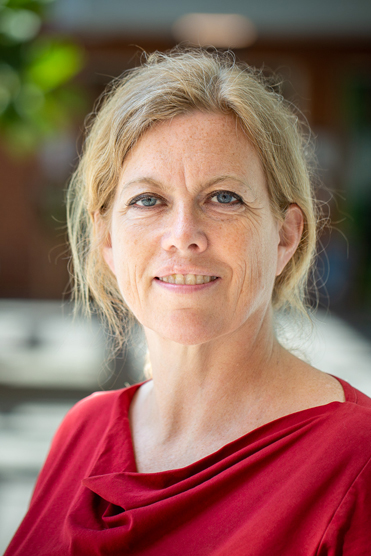Newsletter from the dean

Dear all,
Excited and hopeful students in the corridors and on the pavements are proof that the semester is in full swing – and what a sight!
I probably can’t keep calling myself the new dean, but as I said in connection with my welcome reception, I’m grateful for the fantastic welcome you have given me here at Arts.
Thanks to all of you who have attended the staff meetings in Aarhus about the upcoming reform of the Master’s degree programmes. Together with Niels Lehmann, I will conclude my Master’s reform round in Emdrup on Thursday, and it’s important for me to emphasise that both Niels and I have learned a lot at each meeting. Both because we constantly get new information, and because you ask questions that make us look at the reform from completely new angles.
At first glance, the reform may not seem very big, but the more we talk about it, the bigger it turns out to be. Because when we scratch one corner, it has consequences in completely different corners.
For those of you who haven’t had the opportunity to attend the staff meetings, I would just like to give a brief outline of what we know about the Master’s reform so far.
The reform in brief
The final agreement on the framework for the reform of university degree programmes in Denmark was adopted at the end of June 2023, and in August 2023, the mandate for the Master’s committee tasked with shaping the Master’s degree programmes of the future was agreed on. The Master’s committee consists of rectors from all Danish universities. Together, they will draw up a joint sector plan for all Bachelor’s and Master’s degree programmes in Denmark to be presented in October 2024, and it’s expected that the first Bachelor’s degree students will be admitted in 2025 under the new conditions.
The plan includes the following obligatory tasks:
- 10% of the Master’s degree students will be admitted to degree programmes which have been shortened from 2 academic years (equivalent to 120 ECTS) to 1 ¼ academic years (equivalent to 75 ECTS).
- 20% of the Master’s degree students will be admitted to degree programmes which have been converted to flexible Master’s degree programmes for working professionals of either 120 or 75 ECTS.
- Graduates with a Master’s degree programme of 75 ECTS will have the option of pursuing further education and training.
- Admissions to Bachelor’s degree programmes must be reduced by 8% from 2025.
- Universities will be able to create 1,100 student places on English-taught ordinary Master’s degree programmes.
- The Master’s degree programmes must end a month earlier than they currently do.
As stated in the mandate, the changes will affect the fields of study to varying degrees. This means that 35% of the student places on the humanities programmes will be converted to either 75 ECTS or to Master’s degree programmes for working professionals.
The impact of the Master’s reform on the faculty
As the decisions are made at a national level first, there are a lot of things that we don’t have an influence on yet. I expect that the reform will have such a great impact on Arts that we need to find solutions at faculty level.
We constantly make sure that the faculty management team and heads of department are kept informed of developments, and we will also regularly hold staff meetings and inform various bodies, so that everyone who wishes to be involved can be. As I have said at the meetings, it’s alright if some of you don’t want to deal with the reform as long as everything is still uncertain. I promise you that we in the management are doing everything we can to ensure that Arts will get through this in the best possible way.
Even though such a reform is a major disruption, we must also take this opportunity to change some of the things that we have been wanting to change for a long time. One of the things we would like to explore is how we should educate upper secondary school teachers in the future. I also hope that we can reduce the complexity of our educational landscape at the faculty.
Despite the major changes on the way, I’m very pleased to see all the wonderful students in the university corridors again. Because at the end of the day, that’s what it’s all about!
Wishing you a good semester.
Best regards,
Maja
Dean